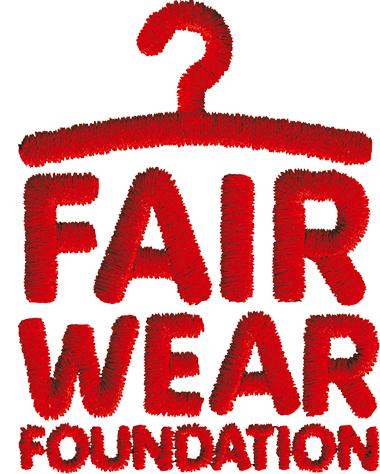FWF Common Health and Safety Problems guide
FWF has developed guides for member companies to monitor the health and safety of workers in apparel factories. The purpose of these tools is to allow staff of member companies who visit the factory often to do a preliminary scan of elementary health and safety issues.
Every factory visit is an opportunity to check on common health and safety issues, and to make clear to factory managers that your brand takes good working conditions seriously. These guides can help to spot health and safety issues between formal audits. However, they are never a substitute for professional audits carried out by trained (FWF) audit teams.
Download
intermediate REPORT COMPLAINT IN italy AT FACTORY SUPPLYING nudie jeans
On 8 July 2013 FWF received a complaint from a worker working in a factory supplying Nudie Jeans. The complaint relates to the labour standards ‘payment of a living wage’, ‘reasonable hours of work’ and ‘safe and healthy working conditions’, which are part of FWF’s Code of Labour Practices.
On- and off-site worker interviews are needed to establish the truthfulness of the documentation. FWFs local complaint handler will continue to get in touch with plaintiffs again to verify the complaint.
Download
Final report of complaint in Bangladesh at factory that supplies Takko – August 2013
On 28 August 2013 FWF received a complaint from a worker from a factory supplying Takko through the workers helpline. The complaint related to three labour standards: ‘no discrimination in employement’, ‘safe and healthy working conditions’ and ‘legally binding employment relationship’.
The complainant claimed she was fired unjustly. Fair Wear Foundation formed a team of three persons to investigate the issue of which the findings can be found in this document. When Takko Fashion tried to set up a meeting for the investigation team and the factory, it was informed that both the factory and the agent have decided to end business relationship on 31 October due to other business reasons. Therefore it was not possible to follow up or verify. FWF was informed by the son of the complainant that she had returned to her hometown and has not been able to contact her since.
Download
INTERMEDIATE REPORT OF COMPLAINT IN Turkey AT FACTORY THAT SUPPLIES Hessnatur
On June 2nd FWF received a complaint through the local hotline. The plaintiff claimed that the line supervisor limits the acces of workers to the in-house doctor. The complaint related to the labour standard ‘safe and healthy working conditions’ which is part of FWF’s Code of Labour Practices.
In the system as it is now, supervisors are in the position to allow or deny workers time off, and it is not registered which requests were denied. Actions required are communicating to all supervisors clearly that there shall be no limitation in access of workers to in-house factory doctor and outside medical services, and establishing a management system that allows registration of all requests of workers for time off, so that the implementation can be monitored.
Download
final REPORT OF COMPLAINT IN Vietnam AT FACTORY THAT SUPPLIES de berkel
On 28 August 2013 FWF received a complaint from a worker working in a factory supplying De Berkel. The complaint related to the labour standard ‘safe and healthy working conditions’ and ‘payment of a living wage’ which are part of FWF’s Code of Labour Practices.
De Berkel instructed the factory to offer plaintiff compensation following FWFs proposal. Factory and plaintiff agreed to solve this matter through court. FWF decided to let the case be handled through local legislation. March 2014 the worker confirmed that the full amount of compensation had been received and thanked FWF for its commitment to realise a solution.
Download
Final report of complaint in Bangladesh at factory that supplies Takko
On 14 June 2013 FWF received a complaint from a worker working in a factory supplying Takko. The complaint related to the labour standards ‘discrimination in employement’ and ‘safe and healthy working conditions’ that are part of FWF’s Code of Labour Practices.
FWF informed Takko Fashion on 16 June 2013. The factory paid the 1st installment of maternity leave benefit to the complainant on 20 June. The process was supervised by Takko’s local compliance staff. It also promised the affiliate that the 2nd installment will be paid once the worker returns after maternity leave. FWF will monitor the payment of the second installment when the worker returns to the factory.
Download
final report bangladesh complaint against a factory supplying Pama
On 4 June 2013 FWF received a complaint from a worker working in a factory supplying Pama. The complaint related to the labour standards ‘discrimination in employment’ and ‘safe and healthy working conditions’ that are part of FWF’s Code of Labour Practices.
FWF informed the affiliate – Pama International. The brand discussed the issue with the manager of the supplier immediately. The factory admitted the problem and paid complainant, who finally resigned. The factory has sent photos to Pama International on the improvements regarding the issues of the complaint.
FWF strongly recommends Pama International to enroll the factory in the Workplace Education Programme.
Download
Final report of complaint in Bangladesh at factory that supplies Takko
On 29 October 2013 FWF received a complaint of a group of workers who had recently been fired by the factory. The complaints related to the following labour rights that are part of FWF’s Code of Labour Practices: ‘No discrimination’, ‘Safe and healthy working environment’ and ‘Payment of a living wage’.
On 27 October 2013 workers started demonstration against the factory because of high level of abuse, harassment and high risk of fire safety. In addition, the workers did not have legal benefits. In a conflict that arose form this, a number of workers and some management staff were injured. A police case was filed against 98 workers, who were then fired by the factory. The audit found that there were a number of health and safety issues, which have high priority to be fixed. The factory is under the Bangladesh Accord and has promised to share the Accord audit report and remediation plan once it is audited.
Takko organised a meeting for FWF’s liaison officer and the factory owner to discuss the followup. Two top management members who were accused by workers of being abusive have been fired. Also, FWF was requested to implement the Workplace Education Programme at this factory and another factory of the same owner. FWF will help the factory to organise a human resource management training. Factory management will follow up on the corrective action plans of the audit but did not want to reinstate the 98 workers who went on demonstration. The dismissed workers have received compensation.
Download
Bangladesh: Interview with Rana Plaza Survivor
Garment worker Firoz Hossen survived the world’s deadliest accident in the garment industry. FWF talked to him in Savar, Bangladesh – February 2014.
Download
Bangladesh Enhanced Monitoring Programme 2014
Read more about the Bangladesh Enhanced Monitoring Programme, which seeks to support existing initiatives and efforts, while optimising the impact of FWF member companies’ monitoring activities.
In Bangladesh, the garment sector is the main contributor to economic development, as it is responsible for 80% of the country’s export. Its competitive advantage depends heavily on low production costs. The garment industry offers many possibilities for local entrepreneurs, yet its volatility and downward pressure on prices put them in a vulnerable position.
All eight standards of the FWF Code of Labour practices are applicable to and relevant for Bangladesh. As instances of non-compliance with each of these standards are common, all eight of them need the attention of companies buying goods there. Child labour is a risk, Bangladesh is known for its low wages and also for the lack of a healthy social dialogue among employers and unions.
It is clear that additional action is needed, above and beyond what FWF requires of its member companies in most other production countries. For both building and fire safety and the prevention of violence against women there is an obvious need and there are possibilities to enhance activities.
Download







